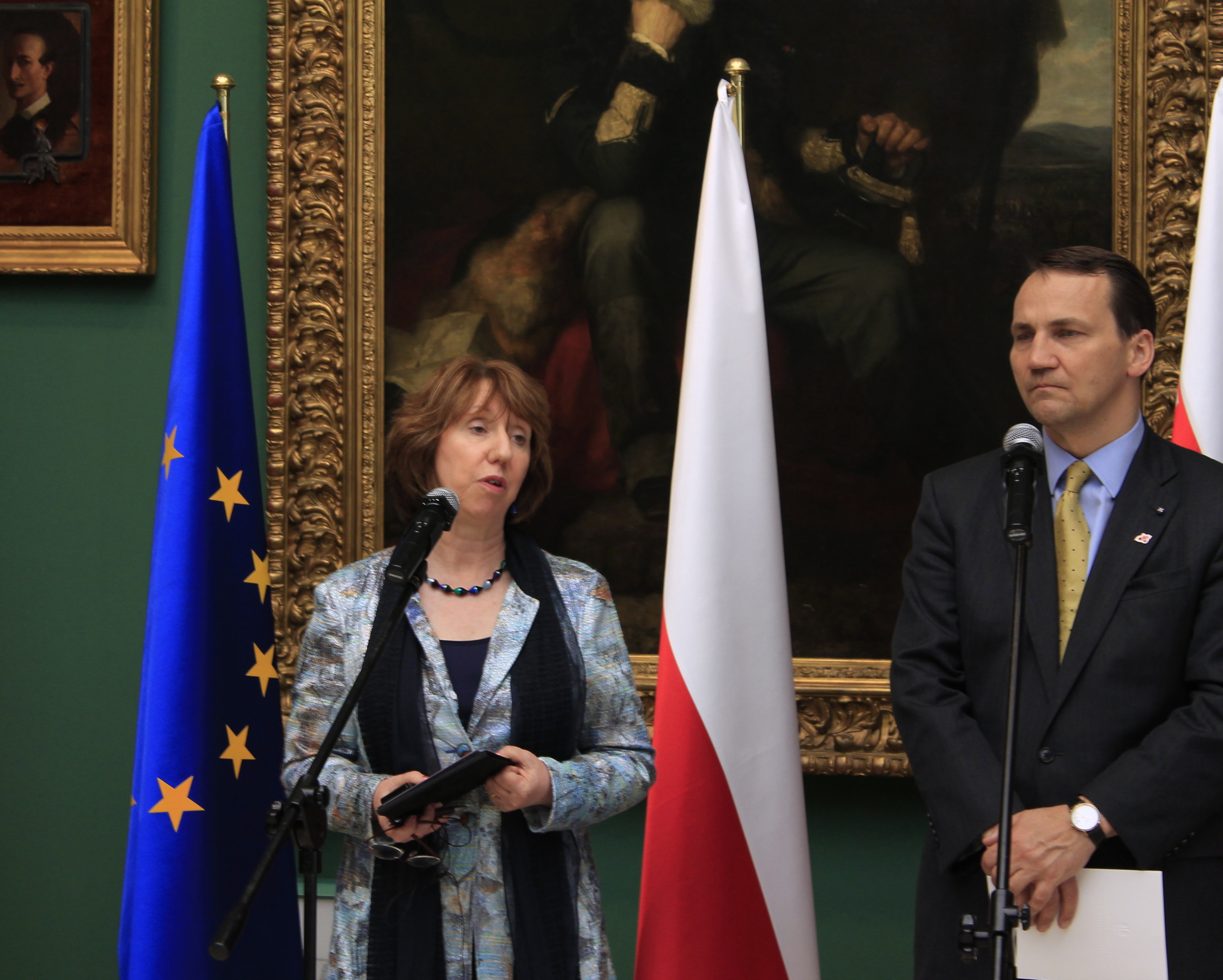There Is No Plan B
May 19, 2013 -
Adam Reichardt
-
Bez kategorii

ashton_radek1.jpg
On Friday May 17th, Krakow, Poland, hosted a summit of the foreign ministers of both the Visegrad Group and the Eastern Partnership states. The summit included the participation of the European Union’s Foreign Policy Chief, Catherine Ashton as well as Štefan Füle, the EU Commissioner for enlargement policy. The summit was hosted by Polish Foreign Minister Radosław Sikorski and held in the framework of the Visegrad Group, of which Poland is currently the president.
“Naturally, a very important element of our discussion was the upcoming Eastern Parntership summit, where there may be the possibility to sign the Association Agreement with Ukraine, as well as initialling the very ambitious agreements with Armenia, Georgia and Moldova,” Sikorski said during the press conference following the Krakow meeting. However, with Ukraine it remains unclear if both sides will actually be signing the Association Agreement. When asked about his assessment of the situation with Ukraine, Sikorski said, “To date, Ukraine has not fulfilled the conditions for signing the Association Agreement. It still has three months to do so.”
If Ukraine and the EU do not sign the agreement, what is Plan B? So far there has been no answer to this question. But it was clear that Sikorski’s patience is wearing thin when it comes to Ukraine, when he pointedly said: “If we do not sign the agreement during the summit, I don’t know when the next chance will be.”
Ashton and Füle were more diplomatic in their assessment of the situation, but also emphasised the need for resolving key issues before signing the agreement. “It is important that those issues of selective justice are addressed, and addressed in a way that is satisfactory in order to move forward. And we really do hope that we can move forward,” Ashton said.
When it comes to Belarus, there are no clear answers to its status in the Eastern Partnership. It is also unclear as to what level of engagement Belarus will have in the November summit. Still, Füle maintained that Belarus should use the Eastern Partnership format to engage with the EU. “There is a lot of potential for Belarus itself and the citizens of Belarus in the Eastern partnership,” Commissioner Füle stated. “But to use this potential, there are certain conditions to fulfil; such as the commitment to our values and fundamental freedom and democracy, that was what we have focused on in our discussions.”
The assertiveness of Sikorski, as well as Ashton and Füle, showed a strict stance towards these two controversial partners. But it also highlighted the deficit that remains in the Eastern Partnership, leaving open the questions on the future of the cooperation with the countries that will not sign the agreement.
Nevertheless, the aim of the November summit in Vilnius will be to showcase the success of the Eastern Partnership programme as well as bring a symbolic end to some of the long-negotiated agreements with countries such as Georgia and Moldova. But the results of the Summit notwithstanding, the conclusion of Vilnius will bring more questions than answers.
The Eastern Partnership after November is going to need new energy if it plans to continue and evolve, and Poland is unable to carry that burden of pushing forward the Eastern agenda by itself. If the EU and Ukraine do manage to sign the Association Agreement, this will provide some much needed momentum. Intense discussions are taking place and we can still remain hopeful that Ukraine and the EU will manage to come to an agreement. But there needs to be a red line, and all indications are that November is that red line. The Ukrainian political elite needs to decide if it wants to take the next step forward in strengthening its relationship with the EU or not.
If it decides not to, this of course will not mean the end of EU-Ukrainian relations, but it will give a serious blow to the Eastern Partnership programme and Polish foreign policy leadership. At that point, we will need to ask some tough questions, including: how should the EU reconfigure the Eastern Partnership programme? What will the next goals be?
Of course, these are questions that will only be asked (and hopefully answered!) after November.
Adam Reichardt is the editor-in-chief of New Eastern Europe. You can follow him on Twitter @areichardt.
Giacomo Manca is an editorial intern at New Eastern Europe.




































